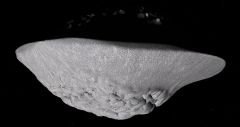Difference between revisions of "Atlas"
Jump to navigation
Jump to search
m ({{SaturnSat}}) |
(Added content.) |
||
| (10 intermediate revisions by 2 users not shown) | |||
| Line 1: | Line 1: | ||
| − | Atlas is | + | {{Nsat-Stub}} |
| + | |||
| + | {| cellpadding="2" cellspacing="0" style="margin:25px 0 0 10px; border:3px solid lightsteelblue;width:250px; font-size:90%; font-family:'Arial','Helvetica'; float: right; clear: right;"Template in Orbiter" | ||
| + | !bgcolor="lightsteelblue" colspan="2" align="center" |Atlas | ||
| + | |- | ||
| + | |colspan="2" align="center"|[[Image:Atlas-SaturnMoonszip-Orbiter2016D3D9.jpg|240px]] | ||
| + | |- | ||
| + | |colspan="2" align="center"|'''Atlas from ''Saturn Moons.zip'' in Orbiter 2016 with D3D9''' | ||
| + | |- | ||
| + | !bgcolor="lightsteelblue" colspan="2"|Designation | ||
| + | |- | ||
| + | |Name||align="right"|Atlas | ||
| + | |- | ||
| + | |width="30%"|Reference body||align="right" width="30%"|Saturn | ||
| + | |- | ||
| + | !bgcolor="lightsteelblue" colspan="2"|Planetary mean orbits | ||
| + | |- | ||
| + | |width="30%"|Epoch||align="right" width="50%"|2014.39014373717 | ||
| + | |- | ||
| + | |width="30%"|Semimajor axis (a)||align="right" width="50%"|137670988.095 m | ||
| + | |- | ||
| + | |width="30%"|Eccentricity (e)||align="right" width="30%"|0.0000000144511577606 | ||
| + | |- | ||
| + | |width="30%"|Inclination (i)||align="right" width="30%"|0.000007105811891727° <br> (0.000000124019813538 radian) | ||
| + | |- | ||
| + | |width="30%"|Longitude of the ascending node (LAN, ☊)||align="right" width="30%"|208.626701831817° <br> (3.6412228545417 radian) | ||
| + | |- | ||
| + | |width="30%"|Longitude of periapsis (ϖ)||align="right" width="30%"|104.242486953736° <br> (1.81937461780992 radian) | ||
| + | |- | ||
| + | |width="30%"|Mean longitude (L)||align="right" width="30%"|108.701283931732° <br> (1.89719530575393 radian) | ||
| + | |- | ||
| + | !bgcolor="lightsteelblue" colspan="2"|Selected physical parameters | ||
| + | |- | ||
| + | |width="30%"|Mean radius||align="right" width="30%"|2000 m | ||
| + | |- | ||
| + | |width="30%"|Mass||align="right" width="30%"|2.8×10<sup>15</sup> kg | ||
| + | |- | ||
| + | |width="30%"|SidRotPeriod||align="right" width="30%"|65657.58530145804 sec (18.2382 hours) | ||
| + | |- | ||
| + | |width="30%"|SidRotOffset||align="right" width="30%"|0 | ||
| + | |- | ||
| + | |width="30%"|Obliquity||align="right" width="30%"|1.09044646015132 | ||
| + | |- | ||
| + | |width="30%"|LAN||align="right" width="30%"|5.24385919090949 | ||
| + | |- | ||
| + | |width="30%"|Note||align="right" width="30%"|*Elements given are from Atlas.cfg (Saturn Moons.zip) | ||
| + | |} | ||
| + | |||
| + | '''Atlas (Saturn XV, S/1980 S 28)''' is an inner [[natural satellites|moon]] of [[Saturn]]. It was discovered by [[w:Richard Terrile|Richard Terrile]] in images taken by [[w:Voyager 1|Voyager 1]] images in 1980. Atlas is located near the inner edge of Saturn's A ring, and experiences perturbations by [[Prometheus]] and [[Pandora]]. | ||
| + | |||
| + | == Atlas in Orbiter == | ||
| + | Atlas joined [[Orbiter]] in October 2002 with the release of isaturn.zip. It is too small to have significant gravity, so vessels landed may tend to drift off the surface. | ||
| + | |||
| + | {|class="wikitable sortable” style="text-align: center" | ||
| + | |- | ||
| + | |colspan="8"|<center>'''Orbiter versions and add-ons which include Pan'''</center> | ||
| + | |- | ||
| + | !Add-on!!Source!!Version!!Author!!Type!!Release Date!!Compatibility!!Wiki article | ||
| + | |- | ||
| + | |[https://www.orbiter-forum.com/resources/saturn-moons.3813/ Saturn Moons]||O-F Resources||2014-09-21||T1234||Scenery||21 September 2014|||| | ||
| + | |- | ||
| + | |[https://library.avsim.net/esearch.php?DLID=&Name=&FileName=outer_planets-060929-base.zip&Author=&CatID=root The Outer Planets 060929 Base]||AVSIM||||Rolf Keibel<br>Carl Romanik<br>Tony Dunn||Scenery||30 September 2006||Orbiter 2006-P1|| | ||
| + | |- | ||
| + | |[https://library.avsim.net/esearch.php?DLID=&Name=&FileName=outerplanets-050329_update.zip&Author=&CatID=root The Outer Planets 050329 Update]||AVSIM||050329||Rolf Keibel<br>Tony Dunn<br>Carl Romanik||Scenery||30 March 2005|||| | ||
| + | |- | ||
| + | |[https://library.avsim.net/esearch.php?DLID=&Name=&FileName=outerplanets-050125.zip&Author=&CatID=root The Outer Planets 050125]||AVSIM||050125||Rolf Keibel<br>Tony Dunn||Scenery||26 January 2005||Orbiter 2005-P1|| | ||
| + | |- | ||
| + | |[https://library.avsim.net/esearch.php?DLID=&Name=&FileName=isaturn.zip&Author=&CatID=root Inner Moons of Saturn]||AVSIM||||Rolf Keibel||Scenery||15 October 2002|||| | ||
| + | |} | ||
| + | |||
| + | == See also == | ||
| + | [[w:Atlas (moon)|Atlas]] at [[w:Wikipedia|Wikipedia]] | ||
| + | |||
| + | == Gallery == | ||
| + | <gallery widths="100" heights="100"> | ||
| + | Atlas021015.jpg|<center>Atlas from ''isaturn.zip'' in Orbiter 2002</center> | ||
| + | Atlas-outerplanets050125zip-Orbiter2005P1.jpg|<center>Atlas from ''outerplanets-050125.zip'' in Orbiter 2005P1</center> | ||
| + | Atlas-outerplanets060929basezip-Orbiter2006P1.jpg|<center>Atlas from ''outer_planets-060929-base.zip'' in Orbiter 2006P1</center> | ||
| + | Atlas-SaturnMoonszip-Orbiter2016D3D9.jpg|<center>Atlas from ''Saturn Moons.zip'' in Orbiter 2016 with D3D9</center> | ||
| + | Atlas color PIA21449.png|<center>Atlas as seen by the [[w:Cassini-Huygens|Cassini]] spacecraft on 12 April 2017,<br>from Wikimedia Commons<center> | ||
| + | </gallery> | ||
| + | |||
{{SaturnSat}} | {{SaturnSat}} | ||
| − | {{ | + | {{SolarSystem}} |
| + | |||
| + | [[Category:Articles]] | ||
| + | [[Category:Celestial bodies]] | ||
| + | [[Category:Solar System]] | ||
| + | [[Category:Natural satellites]] | ||
| + | [[Category:Satellites of Saturn]] | ||
Latest revision as of 12:44, 7 November 2024
 | This natural satellite related article is a stub. You can help Orbiterwiki by expanding it.
Atlas (Saturn XV, S/1980 S 28) is an inner moon of Saturn. It was discovered by Richard Terrile in images taken by Voyager 1 images in 1980. Atlas is located near the inner edge of Saturn's A ring, and experiences perturbations by Prometheus and Pandora. Atlas in Orbiter[edit]Atlas joined Orbiter in October 2002 with the release of isaturn.zip. It is too small to have significant gravity, so vessels landed may tend to drift off the surface.
See also[edit]Gallery[edit]
| ||||||||||||||||||||||||||||||||||||||||||||||||||||||||||||||||||





